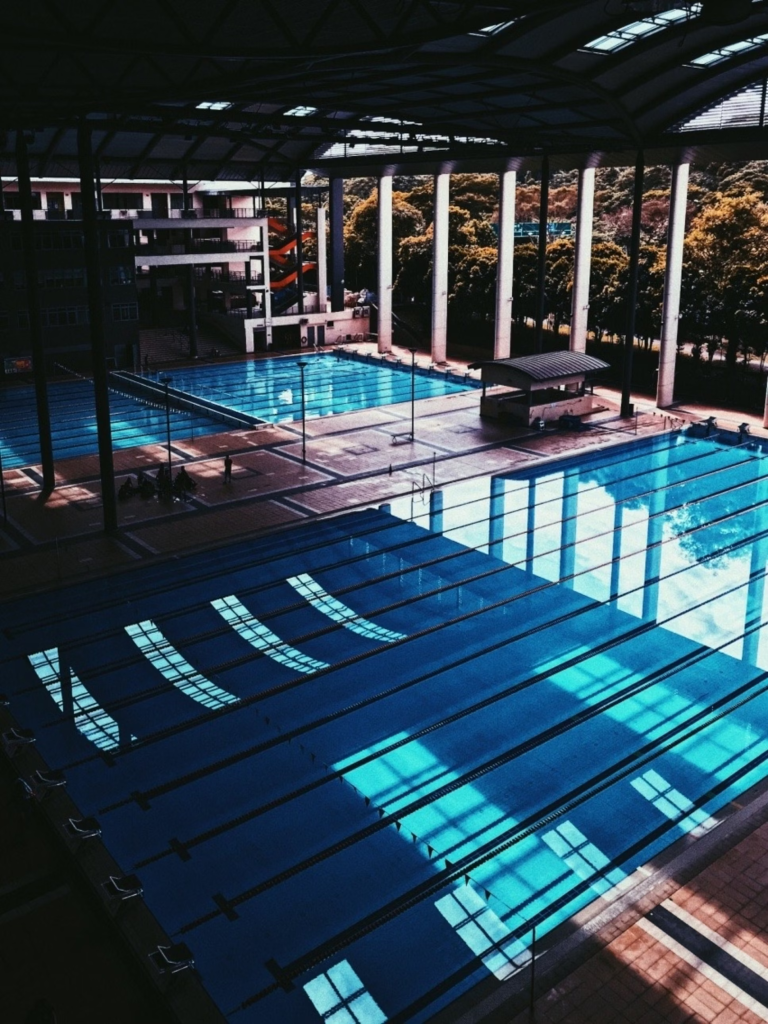Fibreglass pools have become popular for homeowners looking for a low-maintenance, long-lasting, cost-effective swimming pool option.
As a durable and efficient solution, fibreglass pools are designed to withstand the test of time while requiring minimal upkeep compared to other pool types, such as concrete or vinyl liner pools.

In this article, we’ll explore why fibreglass pools stand out in terms of durability and low maintenance, and how they can be a great addition to your outdoor living space.
By the end, you’ll see why fibreglass pools are an excellent investment for your home and lifestyle.
What Makes Fibreglass Pools Durable?
Fibreglass pools are known for their exceptional durability. They are made from reinforced fibreglass, which is strong and flexible, allowing them to resist cracking, chipping, or fading over time.
These pools can endure the harsh conditions of Australia’s climate, from intense sun to heavy rain and fluctuating temperatures.
Strength Of Fibreglass Material
The fibreglass material used in pool construction is inherently strong and resistant to damage. Fibreglass pools are less prone to cracking or developing issues such as rough surfaces than concrete pools. The smooth surface of a fibreglass pool is resistant to algae growth, which helps maintain water quality over time.
Fibreglass pools are also designed to adapt to ground movements. This flexibility allows them to handle shifts in the earth’s surface, making them less likely to suffer from structural damage compared to concrete pools, which may crack under similar circumstances.
Built To Last
Fibreglass pools are built to last for decades. Their longevity is partly due to the durable materials used in their construction.
A fibreglass pool can provide years of enjoyment without requiring extensive repairs or replacements when properly installed and maintained.
Low-Maintenance Features Of Fibreglass Pools
Maintaining a swimming pool can be time-consuming, but fibreglass pools are designed to make the process as easy as possible. Here are some key features that make fibreglass pools a low-maintenance option for homeowners.
Smooth, Non-Porous Surface
One of the standout features of fibreglass pools is their smooth, non-porous surface. Fibreglass pools retain a sleek and smooth finish, unlike concrete pools, which can develop rough textures over time.
This non-porous surface prevents algae growth, reducing the need for frequent cleaning and chemical treatments.
The smooth surface also makes fibreglass pools easier to clean. Debris can be easily removed from the surface without harsh scrubbing, which helps save time and effort on pool maintenance.
Reduced Chemical Use
Due to their non-porous surface, Fibreglass pools require fewer chemicals than concrete pools. The smooth, sealed finish prevents water absorption, meaning chemicals stay in the pool water longer, reducing the need for constant chemical adjustments.
This reduced chemical use simplifies maintenance and helps maintain healthier water conditions. Homeowners can save on pool chemicals, making fibreglass pools a more cost-effective option in the long run.
Resistance To Stains And Scaling
Fibreglass pools are naturally resistant to stains and scaling. The non-porous surface prevents dirt and minerals from adhering to the pool’s surface, reducing the likelihood of unsightly stains or the formation of calcium deposits.
As a result, the pool requires less frequent scrubbing and maintenance to keep the water clean and clear.
Less Frequent Cleaning And Skimming
Due to their smooth surface, Fibreglass pools require less frequent cleaning and skimming. The smooth finish makes it more difficult for dirt, leaves, and debris to cling to the surface, allowing pool owners to spend less time on routine cleaning tasks.
Additionally, the pool’s filtration system works more efficiently, which also helps reduce maintenance time.
Why Fibreglass Pools Are Better Than Concrete Pools?
While concrete pools have been a popular choice for many years, fibreglass pools offer several advantages that make them a better option for many homeowners. Below, we compare fibreglass pools with concrete pools regarding durability and maintenance.
Durability Comparison
Fibreglass pools have a significant advantage over concrete pools in terms of durability. Concrete pools are more prone to cracking, especially when exposed to ground movement or fluctuating temperatures.
The porous nature of concrete also makes it more susceptible to algae growth, requiring more frequent cleaning and maintenance.
In contrast, fibreglass pools are more resilient. Their flexible structure can adapt to ground shifts without cracking. The smooth, non-porous surface also reduces the risk of algae growth and stains, making them easier to maintain and clean.
Maintenance Comparison
When it comes to maintenance, fibreglass pools are the clear winner. Concrete pools require regular resurfacing to prevent rough surfaces and cracks, which can be costly and time-consuming.
In addition, concrete pools absorb water, which means they require more chemicals to maintain balanced water quality.
Fibreglass pools, on the other hand, require minimal maintenance. Their non-porous surface helps to maintain water quality, while the smooth finish makes cleaning and skimming easier.
Fibreglass pools are also less prone to staining, scaling, or algae growth, reducing the need for frequent cleaning or chemical treatments.
Installation Time
Another key advantage of fibreglass pools over concrete pools is the installation time. Fibreglass pools are pre-manufactured in a factory and then delivered to the site, significantly reducing installation time.
Most fibreglass pools can be installed in as little as 1-2 weeks, while concrete pools can take several months to complete due to the complex construction process.
Cost Comparison
Although fibreglass pools can be more expensive upfront than concrete pools, the lower maintenance and repair costs over time make them a more cost-effective choice in the long run.
Concrete pools often require more repairs, resurfacing, and ongoing maintenance, which can add to significant costs over the pool’s life.
Conclusion
Fibreglass pools are a durable and low-maintenance option that offers homeowners a wide range of benefits.
Their strength, smooth, non-porous surface, and resistance to stains, scaling, and algae growth make them ideal for an easy-to-maintain swimming pool.
Fibreglass pools are more durable than concrete pools and require less maintenance, making them a cost-effective solution in the long run.
With the added benefits of weather resistance and UV protection, fibreglass pools are a great investment for Australian homeowners seeking a reliable and attractive pool solution.
Frequently Asked Questions
How Long Do Fibreglass Pools Last?
Fibreglass pools are designed to last several decades, typically around 30 years or more, with proper maintenance. The durable fibreglass material is resistant to cracking and fading, ensuring a long lifespan.
Regular care and timely maintenance, such as cleaning and chemical balancing, can help maximise the pool’s longevity.
Do Fibreglass Pools Require A Lot Of Maintenance?
No, fibreglass pools are known for their low maintenance. Their smooth, non-porous surface prevents algae growth, making cleaning easier. Additionally, fibreglass pools require fewer chemicals than concrete pools, reducing the time and cost spent on upkeep.
Are Fibreglass Pools Suitable For All Weather Conditions?
Yes, fibreglass pools are ideal for various weather conditions. Their flexible construction allows them to withstand ground shifts and fluctuating temperatures, making them resistant to cracking.
Additionally, fibreglass pools are UV-resistant, ensuring they maintain their appearance even in harsh sunlight, which is especially beneficial in Australia’s climate.
